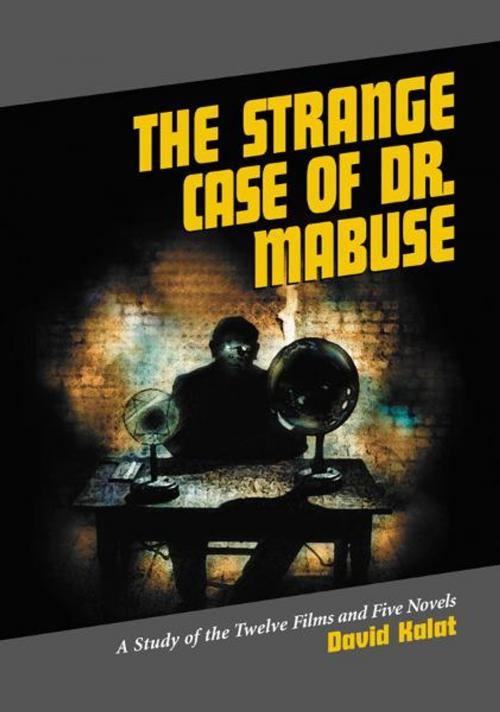The Strange Case of Dr. Mabuse
A Study of the Twelve Films and Five Novels
Nonfiction, Entertainment, Performing Arts, Film, Fiction & Literature, Literary Theory & Criticism| Author: | David Kalat | ISBN: | 9781476601076 |
| Publisher: | McFarland & Company, Inc., Publishers | Publication: | September 16, 2015 |
| Imprint: | Language: | English |
| Author: | David Kalat |
| ISBN: | 9781476601076 |
| Publisher: | McFarland & Company, Inc., Publishers |
| Publication: | September 16, 2015 |
| Imprint: | |
| Language: | English |
The Mabuse phenomenon is recognized as an icon of horror in Germany as Frankenstein and Dracula are in the United States. A study of the 12 motion pictures and five books (and some secondary films) that make up the eight decades of adventures of master criminal Mabuse, created by author Norbert Jacques in the best-selling 1922 German novel and brought to the screen by master filmmaker Fritz Lang in the same year. Both on screen and off, the story of Dr. Mabuse is a story of love triangles and revenge, of murder, suicides, and suspicious deaths, of betrayals and paranoia, of fascism and tyranny, deceptions and conspiracies, mistaken identities, and transformation. This work, featuring much information never before published in English, provides an understanding of a modern mythology whose influence has pervaded popular culture even while the name Mabuse remains relatively unknown in the United States.
The Mabuse phenomenon is recognized as an icon of horror in Germany as Frankenstein and Dracula are in the United States. A study of the 12 motion pictures and five books (and some secondary films) that make up the eight decades of adventures of master criminal Mabuse, created by author Norbert Jacques in the best-selling 1922 German novel and brought to the screen by master filmmaker Fritz Lang in the same year. Both on screen and off, the story of Dr. Mabuse is a story of love triangles and revenge, of murder, suicides, and suspicious deaths, of betrayals and paranoia, of fascism and tyranny, deceptions and conspiracies, mistaken identities, and transformation. This work, featuring much information never before published in English, provides an understanding of a modern mythology whose influence has pervaded popular culture even while the name Mabuse remains relatively unknown in the United States.















